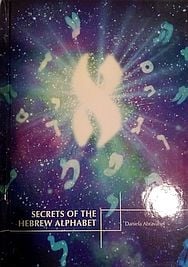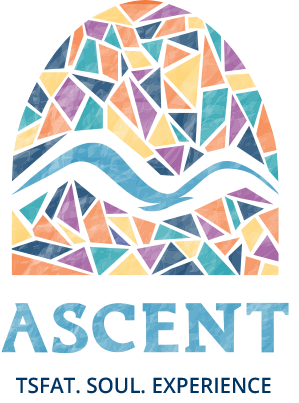KabbalaOnline.org "Say 'Thank You!'" [Vaeira 5783]
KabbalaOnline.org "Say 'Thank You!'" [Vaeira 5783]
|
ASCENT OF SAFED, P. O. BOX 296, SAFED 13102, email: director@ascentofsafed.com The week of VAEIRA 5783 Dedicated in loving memory and for the merit of MORDECHAI ben KALMAN ז"ל May his soul have a great elevation above and continue to be a
faithful advocate for STEVEN SCHMUTTER & FAMILY שי' The
Ba’al Shem Tov [1]
taught we have to take a lesson in how to serve G-d from everything that
happens around us. How much more so, taught the Alter Rebbe [2] (whose yahrzeit was this week),
that we have to “live with the times” meaning to delve into the Torah for
special pertinent messages for ourselves. Ask
any child, “Who brought the Ten Plagues on Egypt?”, and they will say
“Moshe”. Yet if we study the verses in this week’s Torah portion, Vaeira,
we see that this is not always the case. The verse says “And G-d said to
Moshe, tell Aharon, take your staff and point your hand to the waters of
Egypt, on their rivers, on their lakes and on their ponds and on every place
of their water and it will be blood…” (Shemot/Exodus 7:19). Our
main commentator, Rashi [3], asks why it is written, “…tell
Aharon…” [Moshe’s brother]? Because the river protected Moshe when he was
placed there in the basket. So it was not struck by Moshe’s hand, nor was the
plague of blood, or the frogs (who also came out of the water) brought by
Moshe., Rather these were done by Aharon. Similarly, it is mentioned
concerning the plague of lice, “And G-d told Moshe, say to Aharon, point your
staff at the dust of the earth and it will become lice in all the land of
Egypt” (ibid. 8:12). Similarly, Rashi also says here on the words, “…say to
Aharon”, that it was not appropriate that Moshe would bring the plague of
lice because the sand protected him when he killed the Egyptian and buried
him there, therefore the plague was brought by Aharon. If
we think about this teaching we see that, concerning the first three plagues,
G-d was not just telling us about Moshe, He was rebuking Pharaoh! G-d is
teaching us how to behave. Not like you, evil Pharaoh, who has forgotten the
source of all your greatness. When we look at last week’s Torah portion, Shemot,
we see that the very beginning of Pharaoh’s sins was ingratitude! The verse
clearly states, “And a new king arose in Egypt, who did not know Yosef” Rashi
teaches that Pharaoh made himself as though he did not recognize Yosef and
all that he had done to save Egypt.
This
is what the Midrash teaches. How could it be that Pharaoh did not know Yosef?
Yosef was second in command to the king and saved Egypt from starvation.
Pharaoh was obligated to show appreciation to the Jewish people, the nation
of Yosef, for all the good that Yosef did for the Egyptian nation! This is
what Rabbi Abin taught. “This is analogous to a person who stoned a friend of
the king. The king decreed, cut off his head, because tomorrow he will do it
to ME!” This is the inner meaning of the verse, “…who did not know Yosef”
(Shemot 1:8). Pharaoh made himself as if he did not know Yosef, and
soon after, the same Pharaoh will say “I don’t know G-d” (Shemot 5:2). In
the ancient text, the Mishnah of Rabbi Eliezer, it explains that we learn
from here that there is almost nothing more difficult for G-d than
ungratefulness. When a person is ungrateful it is as though they are denying
G-d. Today they will forget about what their friend did for them and tomorrow
they will forget about G-d. Adam was thrown out of the Garden of Eden because
he was ungrateful. The same with our fathers in the desert and the same again
with our fathers in Israel. All the problems stemmed from ingratitude. That
is what we learn from the words that Pharaoh said, ‘I don’t know G-d’. From
being ungrateful to people we will come to deny the Creator! [The Talmud
reminds us that ingratitude and lack of respect and honor towards our parents
leads to the same outcome.] [Adapted
from Rabbi Yosef Berger. Peninim. Vaeira
5783] In
the early 1990s, one of the great medical research exercises of modern times
took place. It became known as the Nun Study. Some seven hundred American
nuns, all members of the School Sisters of Notre Dame in the United States,
agreed to allow their records to be accessed by a research team investigating
the process of ageing and Alzheimer’s Disease. At the start of the study the
participants were aged between 75 and 102. What
gave this study its unusual longitudinal scope is that sixty years earlier
the very same nuns had been asked by their Mother Superior to write a brief
autobiographical account of their life and their reasons for entering the
convent. These documents were now analyzed by the researchers using a
specially devised coding system to register, among other things, positive and
negative emotions. By annually assessing the nuns’ current state of health,
the researchers were able to test whether their emotional state in 1930 had
affected their health some sixty years later. Because they had all lived a
very similar lifestyle during these six decades, they formed an ideal group
for testing hypotheses about the relationship between emotional attitudes and
health. The
results, published in 2001, were startling. The more positive emotions – such
as contentment, gratitude, happiness, love and hope – the nuns expressed in
their autobiographical notes, the more likely they were to be alive and well
sixty years later. The difference was as much as seven years in life expectancy.
So remarkable was this finding that it has led, since then, to a new field of
gratitude research, as well as a deepening understanding of the impact of
emotions on physical health. What
medicine now knows about individuals, the Torah taught us thousands of years
ago. [From
the writings of Rabbi Lord Jonathan Sacks z”l] We
can learn a deep lesson about gratitude from Rabbi Aryeh Levine z”l, known as
the Tzadik of Jerusalem. When
he was a sixteen-year old yeshiva student in Slutzk, he was known as a truly
exceptional scholar. He soon moved on from there to the Yeshiva at Halosk,
headed by Rabbi Boruch Ber of Kaminitz, author of Birchat Shmuel.
Rabbi Boruch Ber took a special interest in the young man, regarding him as a
prodigy, a special blend of Torah and fear of G-d, good character traits, and
humility. He even began learning Talmud and Jewish law daily with Aryeh which
was considered a very great honor. After
a year, Reb Aryeh came to Reb Boruch Ber for a blessing. He was leaving the
yeshiva for the Torah center of Volozhin to study Torah there! Rabbi
Boruch Ber did not hide his great disappointment. Later in his life, a now
older Rabbi Aryeh Levine admitted that because of the impact of Rabbi Boruch
Ber’s stern reaction, a number of “events and experiences” happened to him. Aryeh
knew in advance that this may happen. But what could he do? He was afraid to
stay there. His host, realizing his incredible abilities, starting trying to
influence him to study secular subjects. Afraid of bringing on himself “spiritual
death” and that bit by bit he would be banned from the Gan Eden
(paradise) of Torah study, he quickly escaped this place of temptation and
moved to Volozhin. Many
years later, Rabbi Levine was asked why he did not explain all of this to
Rabbi Boruch Ber, apologize, reveal his fear to the rabbi? Why was he silent
and brought on himself the great rabbi’s displeasure and the resulting
problems? He gave the most amazing answer. “How
could I have told him? He would have directed his displeasure at my host. My
host provided me with board and lodging, and cared for me. How could I cause
him any damage? I decided that it was better to be silent and to accept Rabbi
Boruch Ber’s reaction, even for years.” From
the time we wake in the morning and say Modeh Ani (I thank you G-d),
until the last moments before sleep at night when we thank G-d in the prayer
before sleep (Shema) – remember to be grateful! Shabbat
Shalom and a sweet new month, Shaul. Shabbat
Mevarchim - blessing the new month of Shevat during the Shabbat prayers. Shevat
begins Sunday night January 22nd. Rosh Chodesh is Monday January
23rd. Look
out for Ascent’s Shevat newsletter in your mailbox. STRATEGIES FOR TRANSFORMING THE
WORLD Rabbi Shaul Leiter’s class on the teachings of the Ba’al Shem
Tov from Keter Shem Tov Monday, January 23, 2023 Israel 8PM/ UK 6PM/ NY 1PM/ LA
10AM Please use the following link: https://ascent-co-il.zoom.us/j/81906073996?pwd=ZUk4SlR6N1kvUldIUUh0WTB1VVNUQT09 Meeting ID: 819 0607 3996 Passcode: 068582 Find your local number: https://ascent-co-il.zoom.us/u/kd1BQirK3D [1]Ba’al Shem
Tov “Master of the Good Name” also known by the acronym BESHT.
Rabbi Yisrael ben Eliezer. 1698-1760. Founder of Chasidism. [2] Rabbi Schneur Zalman of Liadi. 1745-1812. Founder of Chabad
Chassidut. Author of many works – the best known are Shulchan Aruch HaRav,
Tanya and Siddur Torah Or (Nusach “Ari”). [3] Acronym for Rabbi Shlomo
Yitzchaki. 1040-1105. Acclaimed French author of a comprehensive
commentary on the Talmud and Tanach. |
|
Click on
Subscribe to receive any of our free newsletters in your email. |
“I Love You, Ascent!” is the new
online Facebook community for Ascent’s friends and alumni.
It’s free, join us today: bit.ly/loveascent - interact, have fun, or just hangout! See you there
:)
|
Donate here for US tax benefits Donate here for UK tax benefits Donate here for Israel tax benefits |
|
KabbalaOnline.org is a project |
|
|
of Ascent of Safed |
|





Comments
Post a Comment